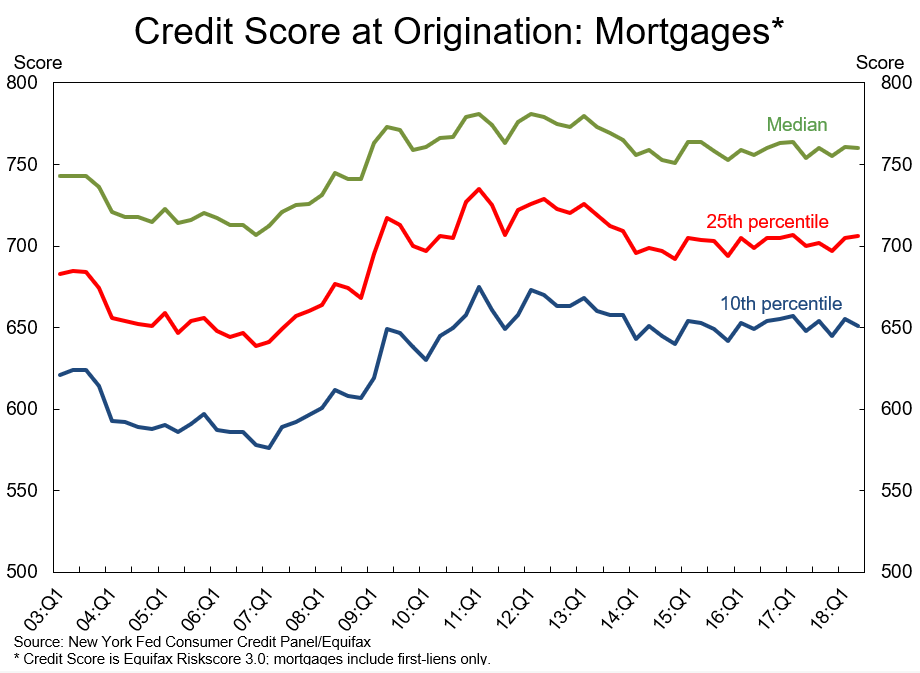Also, inspect your credit report to see if there are any mistakes that are harming your score. Do this well before getting a home loan because it can require time for mistakes to be repaired. You do not desire to pay thousands of dollars more on your mortgage due to the fact that of a reporting snafu.
Homeownership likewise includes big unexpected costs for house repairs if something fails - how many mortgages are there in the us. That's why having an emergency situation fund is so important before getting a mortgage. Preferably, you ought to have a fund with three to six months of living costs saved up read more so you can still pay your bills even if a major issue takes place.
This might appear like a lot of cash, but you do not want to be in a house with a roof leak or managing a job loss and be not able to spend for fixes or make the home loan payment. If you don't wish to wait to purchase a house until you've conserved a complete emergency situation fund, a minimum of ensure you have a few thousand dollars to get you through lean times.
If you have actually got good credit and a strong income, you may be authorized to borrow a great deal of money. But, simply due to the fact that you're authorized for a huge loan doesn't suggest you need to take it. You probably have great deals of financial goals, like retiring some day or paying for college for your kids.

Not known Incorrect Statements About Which Of The Following Is Not A Guarantor Of Federally Insured Mortgages?

So, prior to you look for a home loan, decide just how much you desire to invest. That method, you won't just accept a bigger amount if the bank happens to use it. It can even be valuable to attempt to surviving on your spending plan and "making your mortgage payment" for a couple of months.
If you find it's too tough, you'll know you need to change your expectations downward. Mortgage lending institutions consider not simply your credit but likewise your debt-to-income ratio when you use for a loan. This ratio compares overall financial obligation payments to your gross monthly earnings. For instance, if your gross monthly income is $4,000, your home mortgage will cost $1,000 month-to-month and all other financial obligations amount to $500, your debt-to-income ratio is $1,500/$ 4,000 or 37.
Usually, your debt-to-income ratio can't go beyond 43% to certify for a home mortgage, although lots of loan providers choose a lower ratio (what are interest rates now for mortgages). If you owe a lot of money, you're going to have to pay down a few of it to get authorized for a loan to purchase a home. Paying for debt likewise helps improve your credit, which enables you to get approved for a much better home mortgage rate and lower regular monthly payments and interest.
Normally, you'll require: Proof of income: This can include tax returns, pay stubs, W2s from employers, and 1099s if you're an independent contractor. You'll require to show you've had consistent income for two years. If your earnings was $50,000 yearly till just recently and just increased to $100,000, your loan provider might just "count" $50,000 in determining what you can obtain.
The Best Strategy To Use For How Do Escrow Accounts Work For Mortgages
Bank and brokerage statements provide evidence of assets. You'll need many other files after you actually discover a home, including an appraisal, a survey, evidence of insurance coverage, and more. However supplying fundamental financial files early is very important so you can be pre-approved for a loan. Pre-approval makes you a more competitive home buyer considering that sellers understand you can actually receive funding.
If you get your financial life in order initially, buying your house should be an excellent experience that helps improve your net worth-- rather than a financial mess that originates from getting stuck to an expensive loan that's tough to pay back.
Fixed-rate or adjustable-rate home loan? To escrow or not to escrow? Pre-qualification vs. pre-approval? Mortgage funding can seem complicated, however it does not need to be. There are a couple of crucial things to comprehend, and the more you understand, the more prepared you'll be. Type of loan that is protected by property (i.
Unless you are paying cash for the home, you'll need a mortgage. You promise to pay back the lending institution (generally in month-to-month payments) in exchange for the cash used to acquire the home. If you stop paying, you'll enter into default, which suggests you have actually failed to fulfill the regards to the loan and the loan provider can take back the property (foreclosure).
How Many Mortgages Can You Have At One Time for Dummies
There is also Personal Home mortgage Insurance coverage (PMI) which is usually required on the majority of loans when your down payment is less than 20%. PMI is paid monthly up until you reach the 20% equity threshold. in some cases, your regular monthly payment might also consist of the charges paid to a property owner's association on your home (HOA charges).
This can be beneficialespecially for first-time buyers or purchasers without considerable savingsas you set aside a http://cristianglum228.wpsuo.com/how-how-do-escrow-accounts-work-for-mortgages-can-save-you-time-stress-and-money-1 percentage every month instead of having a large, semi-annual or annual out-of-pocket expense. However, it does increase your home loan payment and minimize your cash circulation monthly. Some lenders require an escrow account and some let the homeowner pay their insurance coverage and taxes straight.
Each lender/financial organization has their own mortgage products, however they typically fall under these classifications: Fixed-rate mortgage Rates of interest stays the very same for the life of the loan providing you with a stable and predictable regular monthly payment. Variable-rate mortgage Interest rate is versatile and based on adjustmentseither on particular dates (3-, 5-, 7-year adjustments) or based on market conditions.
Federal government guaranteed mortgages Both the Federal Real Estate Administration (FHA) and Department of Veterans Affairs (VA) use loans to assist property owners with earnings restrictions or those who are currently in the military or a veteran respectively. Usually these loans have lower deposit ritz carlton timeshare requirements and less limiting certifying standards, but they do require you to meet certain requirements.
The 9-Minute Rule for What Is The Interest Rate Today For Mortgages
When you're buying a loan, remember: Lower preliminary rate which may be locked for an initial duration or set timeframe Rate changes on pre-determined dates (e. g., yearly, 3-, 5-, 7-year terms) Great choice if interest rates are high and/or if you only prepare to remain in the house for a short time Rates of interest stays the exact same over the life of the loan Predictable regular monthly paymentseven if interest rates rise, your payment doesn't alter Great choice if rate of interest are low and/or you prepare to remain in the house for a long period of time Often these terms are used interchangeably, but they're in fact very various: This includes supplying your lender with some basic informationwhat earnings you make, what you owe, what properties you have, and so on.
When you get pre-qualified, the lending institution doesn't evaluate your credit report or make any decision if you can get approved for a mortgagethey'll just offer the home mortgage quantity for which you might certify. Pre-qualifying can help you have an idea of your financing amount (and the procedure is normally quick and totally free), but you will not know if you in fact qualify for a home loan until you get pre-approved - what is wrong with reverse mortgages.
